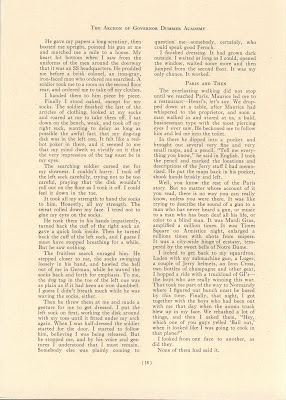 We have been very fortunate to have received a grant through the Digital Commonwealth and the Boston Public Library to have our entire collection of Archons, dating back to 1906, scanned and available on line! These Archons, which once served as both the school newspaper/magazine as well as the alumni publication, give tremendous insight into academy life over the past 100+ years. In addition to providing increased accessibility for research, these digitized documents also provide protection for our existing collection, both as a back up copy for the originals and as a format which will minimize handling, and therefore wear and tear on the original Archons.
We have been very fortunate to have received a grant through the Digital Commonwealth and the Boston Public Library to have our entire collection of Archons, dating back to 1906, scanned and available on line! These Archons, which once served as both the school newspaper/magazine as well as the alumni publication, give tremendous insight into academy life over the past 100+ years. In addition to providing increased accessibility for research, these digitized documents also provide protection for our existing collection, both as a back up copy for the originals and as a format which will minimize handling, and therefore wear and tear on the original Archons.
I am writing to tell everyone that the work on this project is complete! The Archons are available at www.archive.org. Once on the website, simply type in Governor Dummer Academy, The Governor's Academy, or Archon to see a list of the issues, which number over 500. From there, you may click on any issue and read it on your computer, or download it to your kindle or other e reader device. Individual issues are searchable by name or subject as well.
I am grateful to a number of people and groups that helped to make this project possible, including Danielle Pucci and the people from Digital Commonwealth, staff at the Boston Public Library, and volunteers Maria Krull, Namita Bhattacharya, Truman Lu, and Michael Dik. Most recently, I received extensive help from Marco Abreu, son of faculty member Eleodoro Abreu, in entering the relevant information in the Massachusetts cataloguing system online. I hope everyone has the chance to explore this wonderful resource!



































